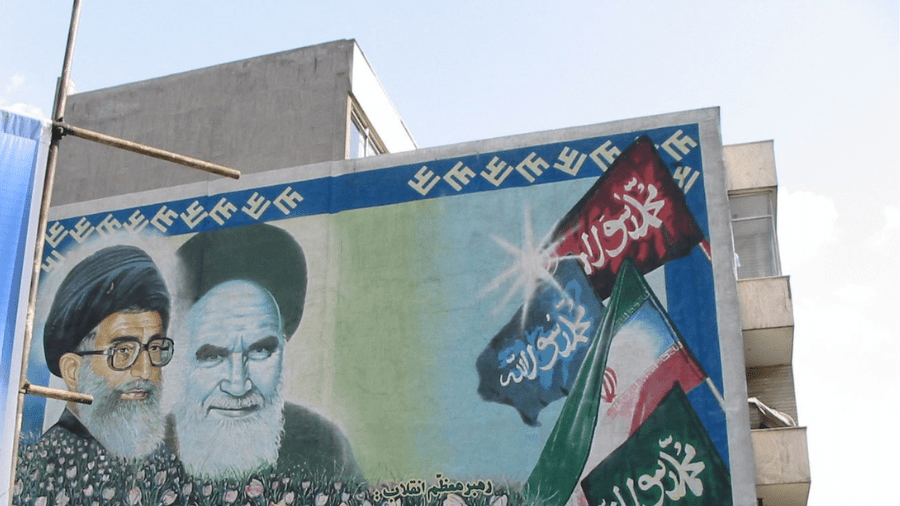This article originally appeared in the National Post.
By Matthew Bondy, September 22, 2023
Earlier this month, the United Nations’ nuclear watchdog reported that Iran has slowed its build-up of near-weapons-grade nuclear fuel. The Wall Street Journal, covering the watchdog’s confidential report, relayed the dwindling tally: Iran “added 7.5 kilograms … of 60 per cent enriched uranium in the three months to August, far less than the 51.8 kilograms it added in the previous six months.”
While that might sound like cause for gratitude and optimism, feelings of relief are naïve. Iran already has enough uranium, enriched to 60 per cent purity, for two nuclear weapons; its arsenal of lower-grade material could also be used to power weapons in the future.
Mere weeks after the report on Iran’s slowdown of suspect nuclear activities, the Islamic Republic kicked out several UN International Atomic Energy Agency inspectors, hollowing out the inspection regime by about one-third. In response, the agency whimpered that “confidence and trust will continue to be elusive.”
That’s putting it mildly.
Yes, the United States, under President Biden, has requested that Iran slow or stall its buildup of enriched uranium. However, merely requesting that the regime threaten international security slightly less than they have in recent months is plainly insufficient and weak.
In recent years, Iran has committed consistent acts of violence and strategic animus toward Canada, the U.S. and our allies. In February of this year, CIA Director William Burns said the Russo-Iranian military alliance is “moving at a pretty fast clip.” The Russo-Iranian alliance likely includes support for Iran establishing a military drone production facility in Russia, fueling Putin’s illegal invasion of Ukraine in exchange for Russian support of Iran developing advanced missile technology. Iran’s relationship with China is also warming; together, Russia, China and Iran increasingly represent an axis of coordinated military power opposed to the West.
The commander of the Quds force, a branch of the Iranian Islamic Revolutionary Guard Corps (IRGC), Esmail Qaani, has been violently crushing democratic dissent in Iran for years. The IRCG is responsible for the killing of more than 400 citizens during the country’s human rights protests of 2022, and Qaani himself claimed credit in May for running “30 operations daily” against Israel through Palestinian militant groups. Iranian troops, technology and intel was supplied to Syrian dictator Bashar Al-Assad to commit heinous war crimes against Assad’s own citizens.
Iran shot down Ukraine International Airlines Flight PS752 in 2020, causing the deaths of 176 people, including 138 Canadian citizens, permanent residents and others with close ties to Canada.
More recently, the Islamic Republic extorted the U.S. into paying $6 billion for the release of kidnapped nationals in August — revealing the criminal nature of the Iranian regime and the naivety of the Biden administration’s willingness to negotiate with terrorists.
Iran is a world hotspot for authoritarian cruelty. It’s a clear threat to international peace and security. Is the West supposed to be gratified by a marginal slowdown in Iran’s march toward the atomic bomb?
Unfortunately, the Biden administration is working to revive the short-sighted Iranian nuclear deal struck by Barack Obama when he was president. This will open the floodgates to relaxing sanctions on Iran, which would improve the regime’s fiscal position and allow nuclear progress with the apparent blessing of the international community.
The Iranian nuclear deal — which trades sanctions relief for nuclear inspections — was ill-conceived and a clear offence to the U.S.-Israeli security relationship. Interestingly, the deal’s most eloquent opponent was a liberal Democrat, U.S. Senator Charles Schumer.
In 2015, Schumer wrote of the deal, “I believe Iran will not change, and under this agreement, it will be able to achieve its dual goals of eliminating sanctions while ultimately retaining its nuclear and non-nuclear power. Better to keep U.S. sanctions in place, strengthen them (and) enforce secondary sanctions on other nations.”
Nothing has changed. Iran is consistently demonstrating its malign intentions, its allegiance to genocidal dictators and its desire to destroy Israel. Iran is an enemy of the West. Applauding Iran’s marginal, tactical delay in developing the nuclear materials is the height of irresponsibility.
Instead, Canada should deepen sanctions against Islamic Republic officials that are directly or indirectly related to the dictatorship’s activities. Top regime officials should never again be permitted to slip through the immigration cracks into Canada.
We should also seek to bring Canadian technologies to bear on allied anti-nuclear warfighting abilities (such as the United States’ bunker-busting bomb, the Massive Ordinance Penetrator) and follow the clear will of Parliament by listing the entire IRGC as a terrorist entity. Finally, we should oppose Biden’s attempt to resume the Iranian nuclear deal and use our clout as the nation that powered the infamous 1980 hostage evacuation from the country to persuade allies to confront Iran as a threat to international security.
The path of responsible international citizenship for Canada as it pertains to Iran requires strength. A less muscular approach represents not enlightened diplomatic reasoning but a willingness to be increasingly threatened and bullied by one of the world’s worst dictatorships.
Matthew Bondy is a Senior Fellow at the Macdonald-Laurier Institute.






